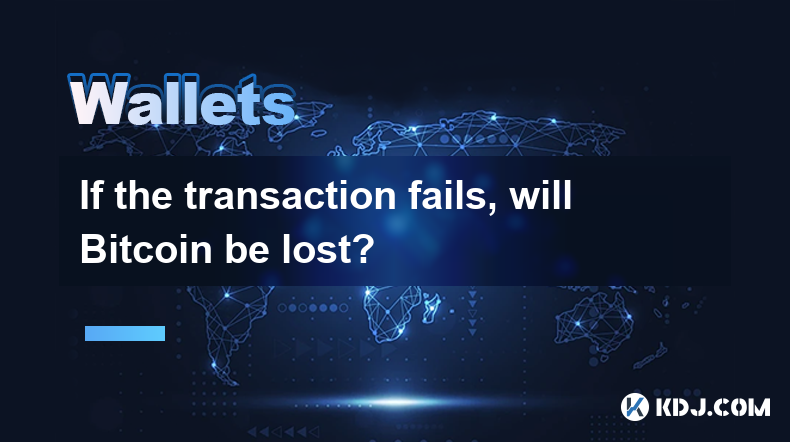-
 Bitcoin
Bitcoin $99,617.4815
2.31% -
 Ethereum
Ethereum $1,986.4455
8.62% -
 Tether USDt
Tether USDt $1.0003
0.03% -
 XRP
XRP $2.2144
3.38% -
 BNB
BNB $617.2234
2.13% -
 Solana
Solana $156.5854
6.33% -
 USDC
USDC $1.0002
0.01% -
 Dogecoin
Dogecoin $0.1858
7.44% -
 Cardano
Cardano $0.7220
7.11% -
 TRON
TRON $0.2501
1.15% -
 Sui
Sui $3.8071
13.18% -
 Chainlink
Chainlink $14.9210
8.33% -
 Avalanche
Avalanche $20.7850
6.19% -
 Stellar
Stellar $0.2743
5.14% -
 Bitcoin Cash
Bitcoin Cash $417.6181
13.65% -
 UNUS SED LEO
UNUS SED LEO $8.7605
0.83% -
 Shiba Inu
Shiba Inu $0.0...01359
5.91% -
 Hedera
Hedera $0.1871
6.00% -
 Toncoin
Toncoin $3.1226
3.14% -
 Hyperliquid
Hyperliquid $21.5481
1.03% -
 Litecoin
Litecoin $92.3374
2.77% -
 Polkadot
Polkadot $4.2372
6.72% -
 Monero
Monero $293.7735
2.89% -
 Dai
Dai $1.0003
0.02% -
 Bitget Token
Bitget Token $4.3628
1.22% -
 Ethena USDe
Ethena USDe $1.0004
0.00% -
 Pi
Pi $0.6243
6.95% -
 Pepe
Pepe $0.0...09531
16.64% -
 Bittensor
Bittensor $402.7974
10.64% -
 Uniswap
Uniswap $5.2340
7.92%
If the transaction fails, will Bitcoin be lost?
Failed Bitcoin transactions can occur due to various reasons, including insufficient funds, invalid data, high fees, node issues, and even malicious software.
Feb 20, 2025 at 01:49 pm

Key Points:
- Understanding Transaction Failure in Bitcoin
- Potential Causes of Bitcoin Transaction Failure
- Steps to Troubleshoot Failed Bitcoin Transactions
- Recovering Lost Bitcoin from Failed Transactions
- Frequently Asked Questions (FAQs)
Understanding Transaction Failure in Bitcoin
Bitcoin transactions are irreversible. Once a transaction has been broadcast to the network and confirmed by multiple nodes, it cannot be reversed or canceled. However, there are certain circumstances that can cause a Bitcoin transaction to fail.
Potential Causes of Bitcoin Transaction Failure
- Insufficient funds: The most common reason for transaction failure is insufficient balance in the sender's wallet.
- Invalid transaction data: Transactions must adhere to specific data format and validation rules. Invalid data can lead to transaction failure.
- High transaction fees: Network congestion can cause high transaction fees. If the transaction fee is too low, it may be pushed back in the queue or rejected altogether.
- Node issues: Temporary node outages or network congestion can delay or prevent transactions from being broadcast or confirmed.
- Malware: Malicious software can tamper with transaction data or hijack wallets, leading to transaction failures.
Steps to Troubleshoot Failed Bitcoin Transactions
- Check wallet balance: Ensure that there are sufficient funds in the sender's wallet to cover the transaction amount and fees.
- Verify transaction details: Double-check the recipient address, amount, and transaction details for any errors.
- Increase transaction fee: If the transaction fee is insufficient, adjust the fee to expedite the transaction.
- Contact customer support: If the above steps do not resolve the issue, contact the wallet provider or exchange for assistance.
- Monitor transaction status: Regularly check the status of the transaction using a block explorer or the wallet's interface.
- Consider a different wallet: If the issue persists with the current wallet, try sending the transaction from a different wallet.
Recovering Lost Bitcoin from Failed Transactions
- Child Pays for Parent (CPFP): If a transaction has been stuck for an extended period, a new transaction with a higher fee can be sent to the same recipient. This can push the original transaction through the network.
- Contact network support: If the transaction has been lost or orphaned due to a network issue, contact network support or miners for assistance.
- Use a recovery tool: Specialized recovery tools can help recover lost Bitcoin from failed transactions in certain cases.
- Submit a transaction ID: Provide the transaction ID to the wallet provider or exchange to inquire about the status and potential recovery options.
FAQs
Q: Can I cancel a Bitcoin transaction that has failed?
A: No, once a Bitcoin transaction has been broadcast, it cannot be canceled.
Q: What happens if a Bitcoin transaction fails?
A: If the transaction fails, the funds will remain in the sender's wallet. The transaction will not be processed or confirmed.
Q: Can I lose Bitcoin in a failed transaction?
A: Generally, no. Failed transactions do not result in the loss of Bitcoin. The funds will remain in the sender's wallet unless malicious activity is involved.
Q: What is a double-spend attack?
A: A double-spend attack is a malicious attempt to spend the same Bitcoin multiple times. This is prevented by the Bitcoin network's confirmation process.
Q: How do I prevent Bitcoin transaction failures?
A: Ensure sufficient funds, verify transaction details, set appropriate transaction fees, and use reliable wallets and network connections.
Disclaimer:info@kdj.com
The information provided is not trading advice. kdj.com does not assume any responsibility for any investments made based on the information provided in this article. Cryptocurrencies are highly volatile and it is highly recommended that you invest with caution after thorough research!
If you believe that the content used on this website infringes your copyright, please contact us immediately (info@kdj.com) and we will delete it promptly.
- Bitcoin Just Broke $99,000 as Crypto Market Reacts to Trump's "Major Trade Deal" Teaser
- 2025-05-08 23:15:12
- Bitcoin Cash (BCH) Breaks 8-Year Downtrend as BTC Bull Token Promises 10x Gains
- 2025-05-08 23:15:12
- Ripple's XRP Has Gained 3% in the Last 24 Hours, Riding the Wave of Renewed Optimism in the Broader Cryptocurrency Market.
- 2025-05-08 23:10:12
- Bitcoin (BTC) is no longer just “digital gold” — Dan Held says the narrative needs to evolve
- 2025-05-08 23:10:12
- Stripe Expands Into the Crypto Arena, Launching Support for USDC Stablecoin Payments
- 2025-05-08 23:05:12
- GoMining Removes the Friction of Entry Into the Bitcoin Ecosystem
- 2025-05-08 23:05:12
Related knowledge

What currencies does Trezor Model T support? How to add them?
May 08,2025 at 08:42pm
The Trezor Model T is a popular hardware wallet that supports a wide range of cryptocurrencies, making it a versatile choice for crypto enthusiasts. In this article, we will explore the various currencies supported by the Trezor Model T and provide a detailed guide on how to add them to your wallet. Supported Currencies on Trezor Model TThe Trezor Model...

Does Exodus support DeFi? How to connect to the application?
May 08,2025 at 07:35pm
Does Exodus support DeFi? How to connect to the application? Exodus is a popular multi-asset cryptocurrency wallet that has garnered attention for its user-friendly interface and wide range of supported cryptocurrencies. One of the frequently asked questions by users is whether Exodus supports decentralized finance (DeFi) applications and how to connect...

Can the Exodus wallet be anonymous? How to protect privacy?
May 08,2025 at 09:35pm
Can the Exodus Wallet Be Anonymous? How to Protect Privacy?The question of whether the Exodus wallet can be anonymous and how to protect privacy within it is crucial for users who value their financial privacy. Exodus is a popular multi-currency wallet that supports a variety of cryptocurrencies, but its default settings do not inherently provide comple...

Where is the private key of Exodus? How to export it?
May 08,2025 at 09:22pm
Where is the private key of Exodus? How to export it? Exodus is a popular multi-currency wallet that allows users to store, manage, and exchange a variety of cryptocurrencies. One of the critical aspects of managing a cryptocurrency wallet is understanding where your private keys are stored and how to export them if necessary. This article will guide yo...

How to import an old wallet to Exodus? Do I need a private key?
May 08,2025 at 07:42pm
Introduction to Importing an Old Wallet to ExodusImporting an old wallet into a new platform like Exodus can be a crucial task for cryptocurrency users looking to manage their assets more efficiently. Exodus is known for its user-friendly interface and support for a wide range of cryptocurrencies. When considering whether to import an old wallet, it's i...

How does MetaMask view mnemonics? What if the mnemonics are leaked?
May 08,2025 at 08:01pm
How does MetaMask view mnemonics? What if the mnemonics are leaked? MetaMask, a popular cryptocurrency wallet, relies heavily on mnemonic phrases for the security and accessibility of users' funds. Understanding how MetaMask views mnemonics and the consequences of their leakage is crucial for any user. This article delves into the mechanics of mnemonics...

What currencies does Trezor Model T support? How to add them?
May 08,2025 at 08:42pm
The Trezor Model T is a popular hardware wallet that supports a wide range of cryptocurrencies, making it a versatile choice for crypto enthusiasts. In this article, we will explore the various currencies supported by the Trezor Model T and provide a detailed guide on how to add them to your wallet. Supported Currencies on Trezor Model TThe Trezor Model...

Does Exodus support DeFi? How to connect to the application?
May 08,2025 at 07:35pm
Does Exodus support DeFi? How to connect to the application? Exodus is a popular multi-asset cryptocurrency wallet that has garnered attention for its user-friendly interface and wide range of supported cryptocurrencies. One of the frequently asked questions by users is whether Exodus supports decentralized finance (DeFi) applications and how to connect...

Can the Exodus wallet be anonymous? How to protect privacy?
May 08,2025 at 09:35pm
Can the Exodus Wallet Be Anonymous? How to Protect Privacy?The question of whether the Exodus wallet can be anonymous and how to protect privacy within it is crucial for users who value their financial privacy. Exodus is a popular multi-currency wallet that supports a variety of cryptocurrencies, but its default settings do not inherently provide comple...

Where is the private key of Exodus? How to export it?
May 08,2025 at 09:22pm
Where is the private key of Exodus? How to export it? Exodus is a popular multi-currency wallet that allows users to store, manage, and exchange a variety of cryptocurrencies. One of the critical aspects of managing a cryptocurrency wallet is understanding where your private keys are stored and how to export them if necessary. This article will guide yo...

How to import an old wallet to Exodus? Do I need a private key?
May 08,2025 at 07:42pm
Introduction to Importing an Old Wallet to ExodusImporting an old wallet into a new platform like Exodus can be a crucial task for cryptocurrency users looking to manage their assets more efficiently. Exodus is known for its user-friendly interface and support for a wide range of cryptocurrencies. When considering whether to import an old wallet, it's i...

How does MetaMask view mnemonics? What if the mnemonics are leaked?
May 08,2025 at 08:01pm
How does MetaMask view mnemonics? What if the mnemonics are leaked? MetaMask, a popular cryptocurrency wallet, relies heavily on mnemonic phrases for the security and accessibility of users' funds. Understanding how MetaMask views mnemonics and the consequences of their leakage is crucial for any user. This article delves into the mechanics of mnemonics...
See all articles

























![[2025.05.08] The two routes of Bitcoin continue to be observed, and gold is still bullish. [2025.05.08] The two routes of Bitcoin continue to be observed, and gold is still bullish.](/uploads/2025/05/08/cryptocurrencies-news/videos/routes-bitcoin-continue-observed-gold-bullish/image_500_375.webp)


























































